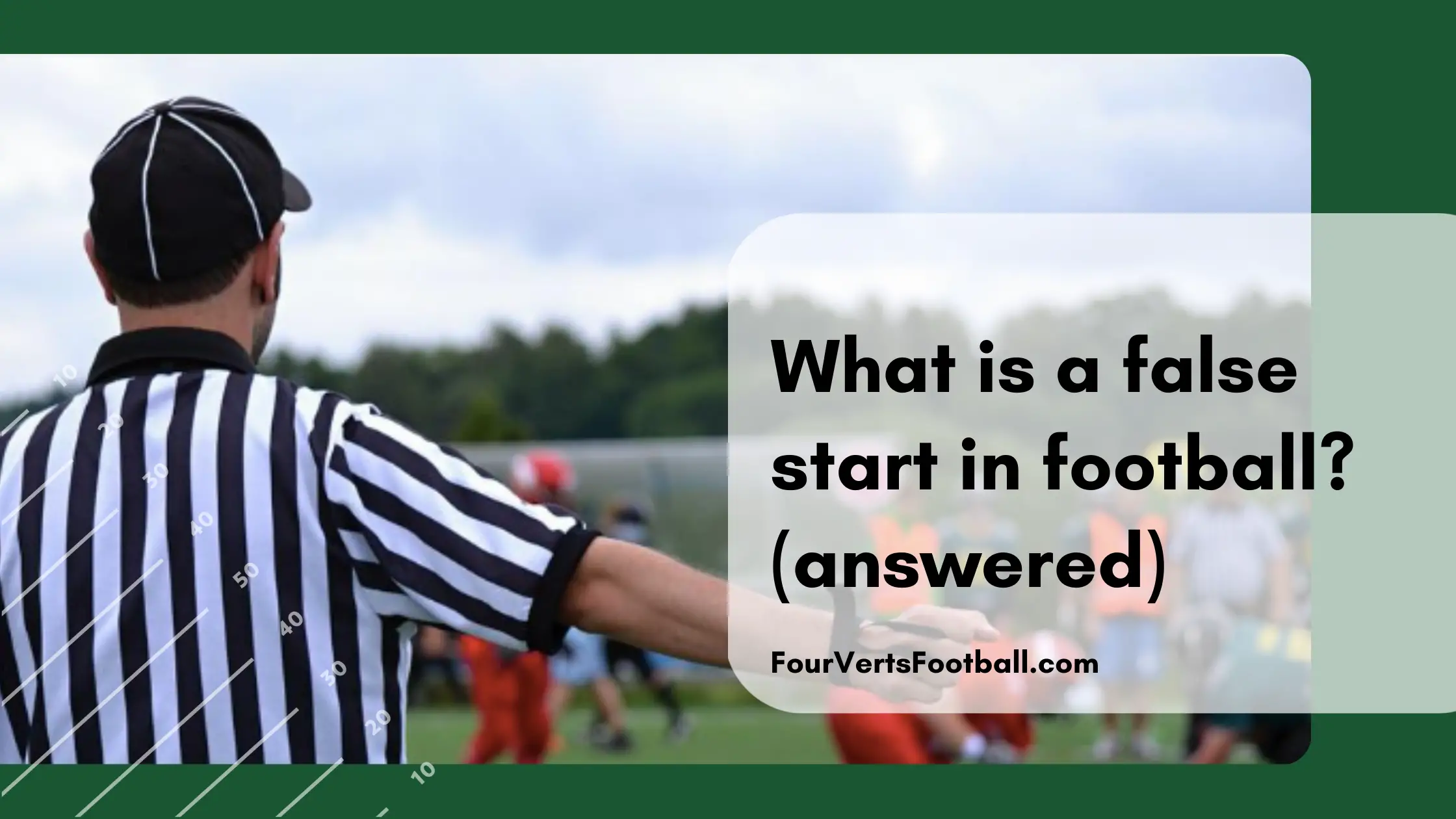In football, a delay of game penalty is called when the 40-second play clock strikes zero before the offense snaps the ball. A five-yard penalty is assessed when delay of game is called.
At the conclusion of each play, a 40-second timer will start. This timer is referred to as the game clock. The offense is responsible for snapping the ball and starting a play before the clock strikes zero.
Letting this clock strike zero before starting the play is the most common reason delay of game is called in football.
That being said there are actually a large number of actions that can lead to a delay of game penalty being called.
If you want to learn more about dead ball fouls see our guides to encroachment, illegal formation or illegal shift.
Reasons for calling this penalty
The play clock striking zero is the usual reason that delay of game penalties are called in football. But there are actually seven other actions that will have this penalty called as well.
Players remaining on a dead ball
When a play comes to a close the officials will signal the fourty second play clock to start. Some players will look to take advantage of this by making it difficult for the officials to get the ball set up for the next play.
If a player remains on the ball or a player remains on top of the ball carrier after the play is done this can lead to a delay of game penalty.
Snapping the ball before the officials are set
In the NFL rulebook, it states that snapping the ball repeatedly before the officials are set can lead to a delay of game penalty.
The word repeatedly is important here as the rulebook makes it appear that committing this infraction once is not going to result in a penalty.
Assembling after a timeout
Another way a team can be charged with a delay of game penalty is if they take too long to assemble after a timeout.
When a timeout is called teams are given a set amount of time in which they can communicate while the game clock and play clock are stopped.
If a team goes beyond this limit during a timeout they can be charged a delay of game penalty.
Attempting to cause a false start
One interesting way you can earn a delay of game penalty as a defensive player is by attempting to cause your opponents to move before the snap.
If a defender lines up near the neutral zone and starts moving in an unnatural way they can earn themselves a false start. In order for this penalty to be called it needs to be an obvious attempt by the defender to get their opponent to commit a false start.
Spiking or throwing the ball
One of the more obvious reasons that delay of game can be called is when spiking the ball after a big play.
After a touchdown, there is no issue with a spike as the offense will be given time to set up for the extra point attempt.
But when in the field of play spiking the ball is going to cost time as the officials are going to have to retrieve it or find a replacement quickly. This slows the game down and potentially costs time off of the clock.
For this reason, players are not allowed to spike a ball or throw it away when the officials need it to get set for the next play.
Intentional contact with the football to delay the snap
Spiking or throwing the football is going to earn you a penalty but so will contacting the ball in any way that will delay the snap.
Say the official is marking the ball down and a defensive player nudges the ball with his foot causing the official to have to mark the ball again.
This will be delay of game penalty as these few seconds will affect the offense’s ability to get the ball snapped before the play clock runs out.
Calling an extra timeout
When a team calls a timeout without any remaining they will be given a delay of game penalty. Teams are only given three timeouts a half, attempting to call a fourth will earn you this penalty.
You would think this sort of thing does not happen at the NFL level but there are usually a few occasions of this each NFL season.

